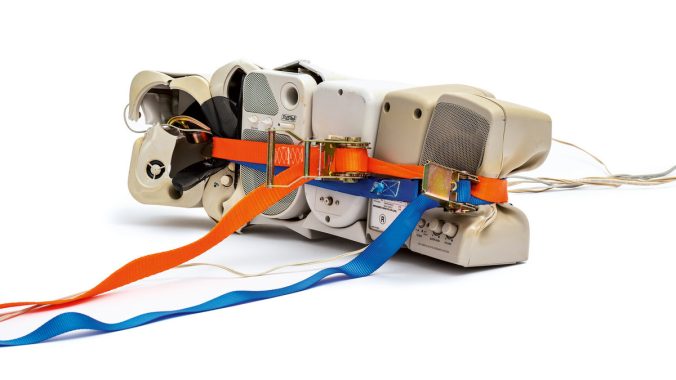Oneohtrix Point Never Delivers Beauty and Spectacle on Again
Daniel Lopatin’s new experimental LP weds strings and electronics over 13 distinct tracks

When the average individual encounters music deemed “experimental,” questions tend to pop up. What are those sounds coming from? Where does this song end and that one begin? It’s confusing and, sometimes, overstimulating. To be transfixed by the unfamiliar because of its unfamiliarity is typical. To thousands, the music of Daniel Lopatin—who releases albums under the name Oneohtrix Point Never—has inspired that and more. But scratch below the affronting surface and, suddenly, chunks of the familiar make themselves manifest. It’s those bits of something intelligible that Lopatin coalesces into a specter of déjà vu. On Again, Lopatin’s latest release, recognizable pieces of classical, pop and alternative rock are somehow both more present and more transformed than on any of his recent projects. They are a trail of breadcrumbs through Lopatin’s young adulthood, after his uncanny infancy seen on Magic Oneohtrix Point Never and his metallic adolescence from Garden of Delete. Again is just as warped and bizarre as any Oneohtrix Point Never release, but its optimism is truly next-level.
It’s hard to picture a young Daniel Lopatin, doe-eyed in his Amherst, MA dorm room, being completely taken aback by the idea that music can be, simply, amorphous assemblages of sounds. Lopatin dove into the discographies of ambient experimentalists like Fennesz and William Basinski, bearing witness to compositions removed from the structure of “song” and living outside the specificities of linear time. Naturally, it did not stop there. Before long, Lopatin and his college buddies were deep-diving into left-of-center music of all varieties and toying with making their own. Again is, in part, an homage to that person he once was, one discovering the possibilities afforded in creative experimentation. Generative AI makes an appearance again, not as a crutch, but as a tool whose limitations—and even downright failures—result in peculiar fragments that Lopatin seeks to exploit. For an album decorated with confronting dynamic changes and grating sounds, Again is just as adorned by moments of naked beauty that escape Lopatin’s signature processes. It reveals his veneration of all tools that have augmented his process. Better yet, the album revels in a youthful optimism that once oozed out of him as a young adult that propelled him into the career he has now: one of this century’s foremost figures in experimental music, credited with two film scores and a slew of collaborations with diverse figures across alt pop ranging from Soccer Mommy to The Weeknd.
-

-

-

-

-

-

-

-

-

-

-

-

-

-

-

-

-

-

-

-

-

-

-

-

-

-

-

-

-

-

-

-

-

-

-

-

-

-

-

-








































